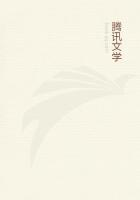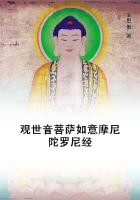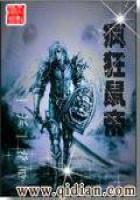Pythagoras, therefore, of Samos, lived in very ancient times, and was esteemed a person superior to all philosophers in wisdom and piety towards God. Now it is plain that he did not only know our doctrines, but was in very great measure a follower and admirer of them. There is not indeed extant any writing that is owned for his (15) but many there are who have written his history, of whom Hermippus is the most celebrated, who was a person very inquisitive into all sorts of history. Now this Hermippus, in his first book concerning Pythagoras, speaks thus: "That Pythagoras, upon the death of one of his associates, whose name was Calliphon, a Crotonlate by birth, affirmed that this man's soul conversed with him both night and day, and enjoined him not to pass over a place where an ass had fallen down; as also not to drink of such waters as caused thirst again; and to abstain from all sorts of reproaches." After which he adds thus: "This he did and said in imitation of the doctrines of the Jews and Thracians, which he transferred into his own philosophy." For it is very truly affirmed of this Pythagoras, that he took a great many of the laws of the Jews into his own philosophy. Nor was our nation unknown of old to several of the Grecian cities, and indeed was thought worthy of imitation by some of them. This is declared by Theophrastus, in his writings concerning laws; for he says that "the laws of the Tyrians forbid men to swear foreign oaths."Among which he enumerates some others, and particularly that called Corban: which oath can only be found among the Jews, and declares what a man may call "A thing devoted to God." Nor indeed was Herodotus of Halicarnassus unacquainted with our nation, but mentions it after a way of his own, when he saith thus, in the second book concerning the Colchians. His words are these: "The only people who were circumcised in their privy members originally, were the Colchians, the Egyptians, and the Ethiopians; but the Phoenicians and those Syrians that are in Palestine confess that they learned it from the Egyptians. And for those Syrians who live about the rivers Thermodon and Parthenius, and their neighbors the Macrones, they say they have lately learned it from the Colchians; for these are the only people that are circumcised among mankind, and appear to have done the very same thing with the Egyptians. But as for the Egyptians and Ethiopians themselves, I am not able to say which of them received it from the other." This therefore is what Herodotus says, that "the Syrians that are in Palestine are circumcised." But there are no inhabitants of Palestine that are circumcised excepting the Jews; and therefore it must be his knowledge of them that enabled him to speak so much concerning them. Cherilus also, a still ancienter writer, and a poet, (16)makes mention of our nation, and informs us that it came to the assistance of king Xerxes, in his expedition against Greece. For in his enumeration of all those nations, he last of all inserts ours among the rest, when he says," At the last there passed over a people, wonderful to be beheld; for they spake the Phoenician tongue with their mouths; they dwelt in the Solymean mountains, near a broad lake: their heads were sooty; they had round rasures on them; their heads and faces were like nasty horse-heads also, that had been hardened in the smoke." I think, therefore, that it is evident to every body that Cherilus means us, because the Solymean mountains are in our country, wherein we inhabit, as is also the lake called Asphaltitis; for this is a broader and larger lake than any other that is in Syria: and thus does Cherilus make mention of us. But now that not only the lowest sort of the Grecians, but those that are had in the greatest admiration for their philosophic improvements among them, did not only know the Jews, but when they lighted upon any of them, admired them also, it is easy for any one to know. For Clearchus, who was the scholar of Aristotle, and inferior to no one of the Peripatetics whomsoever, in his first book concerning sleep, says that "Aristotle his master related what follows of a Jew," and sets down Aristotle's own discourse with him. The account is this, as written down by him: "Now, for a great part of what this Jew said, it would be too long to recite it; but what includes in it both wonder and philosophy it may not be amiss to discourse of. Now, that I may be plain with thee, Hyperochides, I shall herein seem to thee to relate wonders, and what will resemble dreams themselves. Hereupon Hyperochides answered modestly, and said, For that very reason it is that all of us are very desirous of hearing what thou art going to say. Then replied Aristotle, For this cause it will be the best way to imitate that rule of the Rhetoricians, which requires us first to give an account of the man, and of what nation he was, that so we may not contradict our master's directions. Then said Hyperochides, Go on, if it so pleases thee. This man then, [answered Aristotle,] was by birth a Jew, and came from Celesyria; these Jews are derived from the Indian philosophers; they are named by the Indians Calami, and by the Syrians Judaei, and took their name from the country they inhabit, which is called Judea; but for the name of their city, it is a very awkward one, for they call it Jerusalem. Now this man, when he was hospitably treated by a great many, came down from the upper country to the places near the sea, and became a Grecian, not only in his language, but in his soul also; insomuch that when we ourselves happened to be in Asia about the same places whither he came, he conversed with us, and with other philosophical persons, and made a trial of our skill in philosophy; and as he had lived with many learned men, he communicated to us more information than he received from us."This is Aristotle's account of the matter, as given us by Clearchus; which Aristotle discoursed also particularly of the great and wonderful fortitude of this Jew in his diet, and continent way of living, as those that please may learn more about him from Clearchus's book itself; for I avoid setting down any more than is sufficient for my purpose. Now Clearchus said this by way of digression, for his main design was of another nature. But for Hecateus of Abdera, who was both a philosopher, and one very useful ill an active life, he was contemporary with king Alexander in his youth, and afterward was with Ptolemy, the son of Lagus; he did not write about the Jewish affairs by the by only, but composed an entire book concerning the Jews themselves;out of which book I am willing to run over a few things, of which I have been treating by way of epitome. And, in the first place, I will demonstrate the time when this Hecateus lived; for he mentions the fight that was between Ptolemy and Demetrius about Gaza, which was fought in the eleventh year after the death of Alexander, and in the hundred and seventeenth olympiad, as Castor says in his history. For when he had set down this olympiad, he says further, that "in this olympiad Ptolemy, the son of Lagus, beat in battle Demetrius, the son of Antigonus, who was named Poliorcetes, at Gaza." Now, it is agreed by all, that Alexander died in the hundred and fourteenth olympiad; it is therefore evident that our nation flourished in his time, and in the time of Alexander. Again, Hecateus says to the same purpose, as follows: "Ptolemy got possession of the places in Syria after that battle at Gaza; and many, when they heard of Ptolemy's moderation and humanity, went along with him to Egypt, and were willing to assist him in his affairs; one of whom (Hecateus says)was Hezekiah (17) the high priest of the Jews; a man of about sixty-six years of age, and in great dignity among his own people. He was a very sensible man, and could speak very movingly, and was very skillful in the management of affairs, if any other man ever were so; although, as he says, all the priests of the Jews took tithes of the products of the earth, and managed public affairs, and were in number not above fifteen hundred at the most." Hecateus mentions this Hezekiah a second time, and says, that "as he was possessed of so great a dignity, and was become familiar with us, so did he take certain of those that were with him, and explained to them all the circumstances of their people; for he had all their habitations and polity down in writing." Moreover, Hecateus declares again, "what regard we have for our laws, and that we resolve to endure any thing rather than transgress them, because we think it right for us to do so."Whereupon he adds, that "although they are in a bad reputation among their neighbors, and among all those that come to them, and have been often treated injuriously by the kings and governors of Persia, yet can they not be dissuaded from acting what they think best; but that when they are stripped on this account, and have torments inflicted upon them, and they are brought to the most terrible kinds of death, they meet them after an extraordinary manner, beyond all other people, and will not renounce the religion of their forefathers." Hecateus also produces demonstrations not a few of this their resolute tenaciousness of their laws, when he speaks thus: "Alexander was once at Babylon, and had an intention to rebuild the temple of Belus that was fallen to decay, and in order thereto, he commanded all his soldiers in general to bring earth thither. But the Jews, and they only, would not comply with that command; nay, they underwent stripes and great losses of what they had on this account, till the king forgave them, and permitted them to live in quiet." He adds further, that "when the Macedonians came to them into that country, and demolished the [old] temples and the altars, they assisted them in demolishing them all (18) but [for not assisting them in rebuilding them] they either underwent losses, or sometimes obtained forgiveness." He adds further, that "these men deserve to be admired on that account." He also speaks of the mighty populousness of our nation, and says that "the Persians formerly carried away many ten thousands of our people to Babylon, as also that not a few ten thousands were removed after Alexander's death into Egypt and Phoenicia, by reason of the sedition that was arisen in Syria." The same person takes notice in his history, how large the country is which we inhabit, as well as of its excellent character, and says, that "the land in which the Jews inhabit contains three millions of arourae, (19) and is generally of a most excellent and most fruitful soil;nor is Judea of lesser dimensions." The same man describe our city Jerusalem also itself as of a most excellent structure, and very large, and inhabited from the most ancient times. He also discourses of the multitude of men in it, and of the construction of our temple, after the following manner: "There are many strong places and villages (says he) in the country of Judea; but one strong city there is, about fifty furlongs in circumference, which is inhabited by a hundred and twenty thousand men, or thereabouts; they call it Jerusalem. There is about the middle of the city a wall of stone, whose length is five hundred feet, and the breadth a hundred cubits, with double cloisters; wherein there is a square altar, not made of hewn stone, but composed of white stones gathered together, having each side twenty cubits long, and its altitude ten cubits. Hard by it is a large edifice, wherein there is an altar and a candlestick, both of gold, and in weight two talents: upon these there is a light that is never extinguished, either by night or by day. There is no image, nor any thing, nor any donations therein; nothing at all is there planted, neither grove, nor any thing of that sort. The priests abide therein both nights and days, performing certain purifications, and drinking not the least drop of wine while they are in the temple." Moreover, he attests that we Jews went as auxiliaries along with king Alexander, and after him with his successors. I will add further what he says he learned when he was himself with the same army, concerning the actions of a man that was a Jew. His words are these: "As I was myself going to the Red Sea, there followed us a man, whose name was Mosollam; he was one of the Jewish horsemen who conducted us; he was a person of great courage, of a strong body, and by all allowed to be the most skillful archer that was either among the Greeks or barbarians. Now this man, as people were in great numbers passing along the road, and a certain augur was observing an augury by a bird, and requiring them all to stand still, inquired what they staid for. Hereupon the augur showed him the bird from whence he took his augury, and told him that if the bird staid where he was, they ought all to stand still; but that if he got up, and flew onward, they must go forward; but that if he flew backward, they must retire again. Mosollam made no reply, but drew his bow, and shot at the bird, and hit him, and killed him; and as the augur and some others were very angry, and wished imprecations upon him, he answered them thus: Why are you so mad as to take this most unhappy bird into your hands? for how can this bird give us any true information concerning our march, who could not foresee how to save himself? for had he been able to foreknow what was future, he would not have come to this place, but would have been afraid lest Mosollam the Jew should shoot at him, and kill him." But of Hecateus's testimonies we have said enough; for as to such as desire to know more of them, they may easily obtain them from his book itself. However, I shall not think it too much for me to name Agatharchides, as having made mention of us Jews, though in way of derision at our simplicity, as he supposes it to be; for when he was discoursing of the affairs of Stratonice, "how she came out of Macedonia into Syria, and left her husband Demetrius, while yet Seleueus would not marry her as she expected, but during the time of his raising an army at Babylon, stirred up a sedition about Antioch; and how, after that, the king came back, and upon his taking of Antioch, she fled to Seleucia, and had it in her power to sail away immediately yet did she comply with a dream which forbade her so to do, and so was caught and put to death." When Agatharehides had premised this story, and had jested upon Stratonice for her superstition, he gives a like example of what was reported concerning us, and writes thus: "There are a people called Jews, and dwell in a city the strongest of all other cities, which the inhabitants call Jerusalem, and are accustomed to rest on every seventh day (20)on which times they make no use of their arms, nor meddle with husbandry, nor take care of any affairs of life, but spread out their hands in their holy places, and pray till the evening. Now it came to pass, that when Ptolemy, the son of Lagus, came into this city with his army, that these men, in observing this mad custom of theirs, instead of guarding the city, suffered their country to submit itself to a bitter lord; and their law was openly proved to have commanded a foolish practice. (21) This accident taught all other men but the Jews to disregard such dreams as these were, and not to follow the like idle suggestions delivered as a law, when, in such uncertainty of human reasonings, they are at a loss what they should do." Now this our procedure seems a ridiculous thing to Agatharehides, but will appear to such as consider it without prejudice a great thing, and what deserved a great many encomiums; I mean, when certain men constantly prefer the observation of their laws, and their religion towards God, before the preservation of themselves and their country.
同类推荐
热门推荐















